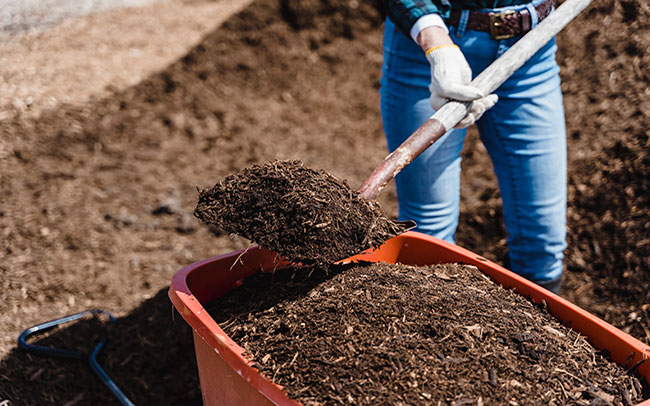

Compost is a dark, crumbly, earthy-smelling material that is made from the natural decomposition of organic materials, such as leaves, grass clippings, food scraps, and yard waste.
There are many benefits to composting, both for the environment and for your garden.
There are many different ways to compost, but the basic principles are the same. You need to combine organic materials with water and air, and then provide a warm environment for the microbes to do their work.
You can compost at home in a backyard bin, worm bin, or even in a bucket on your counter. You can also compost at a community composting site. More is given in details at the links below.
You can compost a wide variety of organic materials, including:
There are a few things that you should not compost, including:
Once your compost is finished, you can use it to improve your soil. You can add compost to your garden beds, flower pots, or even to your lawn.
Compost can be used as a mulch, or it can be mixed into the soil. Compost is a slow-release fertilizer, so it will provide your plants with nutrients over time.
Composting is a great way to reduce your waste, improve your soil health, and save money. It is also an easy and rewarding activity that the whole family can enjoy.
Compost is made by the breakdown of organic matter by microbes, such as bacteria and fungi. Microbes use the carbon and nitrogen in organic matter for energy and growth.
The heat generated by a compost pile is a result of microbial activity. Microbes are most active at temperatures between 130º–140º F.
Larger organisms, such as earthworms, slugs, snails, millipedes, sow bugs, ants, and insect larvae, also play a role in composting. These organisms break down coarse materials, such as leaves and twigs, making them easier for microbes to decompose.
To make compost, it is important to achieve a proper balance of carbon to nitrogen (C:N ratio). Microbes prefer a C:N ratio of 30:1. This means that for every 30 parts of carbon, there should be 1 part of nitrogen.
Most organic materials do not have a C:N ratio of exactly 30:1, so different materials are mixed together to create a balanced mixture. For example, leaves and straw have a high C:N ratio, while food scraps and manure have a low C:N ratio. By mixing these materials together, you can create a compost pile with a C:N ratio that is ideal for microbes.
Once you have created a balanced mixture, microbes and other organisms will start to break down the organic matter, producing compost. The composting process can take several weeks or months, depending on the materials you are composting and the climate you live in.
Here are some additional tips for making compost:
Once your compost is finished, it will be a dark, crumbly material that smells earthy. You can use it to amend your soil, fertilize your plants, or mulch your garden.
How to make organic fertilizer using organic waste as compost manure, in your farmlands, resorts or even large social clubs.
Making organic compost and then using them as fertilizer is the nature's way to replenish the soil with rich micronutrients like nitrates and ammonia in the soil, on which plants survive. They also eliminate or reduce the usage of expensive and harmful chemical fertilizers, which spoil runaway water bodies causing algae blooms, and also making our food toxic. Using natural fertilizers is the prime and best way towards an organic farm produce, coupled with Integrated Pest Management

The following are the most widely practiced ways of creating organic manure by composting methods:
